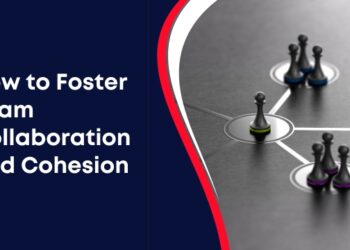Conflict is a natural part of any team environment. Whether it arises from differing opinions, competition for resources, or misunderstandings, how a team leader addresses conflict can significantly impact the team’s morale and productivity. This article will explore effective conflict resolution techniques to help you lead your team through challenging situations while fostering a positive work environment.
Foster Open Communication
One of the most effective ways to resolve conflict is to create an environment where open communication is encouraged. Here’s how:
- Encourage Dialogue: Promote open discussions among team members. Create a safe space where everyone feels comfortable sharing their thoughts and concerns.
- Listen Actively: When conflicts arise, listen to each party’s perspective without interrupting. Show empathy and validate their feelings. You might say, “I understand this situation is frustrating for you.”
- Clarify Misunderstandings: Miscommunication often leads to conflicts. Take the time to clarify any misunderstandings before jumping to conclusions.
Address Issues Early
Addressing conflicts early can prevent them from escalating. Here are some strategies:
- Monitor Team Dynamics: Stay attentive to team interactions. If you sense tension, address it promptly rather than waiting for it to blow up.
- Provide Feedback: If you notice conflicts, provide constructive feedback to those involved. Frame it positively by focusing on solutions rather than blame.
- Encourage Team Members to Speak Up: Remind your team that expressing their concerns is okay. Encourage them to approach you or each other when issues arise.
Mediate When Necessary
Sometimes, conflicts can become too heated for the individuals involved to resolve on their own. As a leader, you may need to step in as a mediator. Here’s how to do it effectively:
- Set Ground Rules: Establish guidelines for the discussion. For instance, ask participants to refrain from interrupting each other and to focus on the issue, not personal attacks.
- Remain Neutral: Your goal as a mediator is to remain impartial. Avoid taking sides and instead focus on facilitating understanding between both parties.
- Summarize Points: Regularly summarize each party’s key points. This helps clarify their perspectives and keeps the conversation on track.
Focus on the Future
After resolving a conflict, it’s essential to look ahead. Here are ways to encourage a forward-thinking mindset:
- Develop an Action Plan: Create a plan for moving forward with the team. Outline specific actions each party will take to prevent similar conflicts in the future.
- Set Follow-Up Meetings: Schedule follow-up discussions to ensure the resolution works and that everyone remains on track.
- Celebrate Resolution: Acknowledge the resolution and celebrate the team’s efforts in overcoming the conflict. This reinforces a positive team culture.
Conclusion
Conflict is inevitable in teamwork, but it doesn’t have to be destructive. By implementing effective conflict resolution techniques, you can turn conflicts into opportunities for growth and collaboration. Foster open communication, address issues early, facilitate collaboration, and lead by example. Remember, the goal isn’t just to resolve conflicts but to strengthen relationships and enhance team dynamics. You can create a positive work environment where everyone feels valued and heard with practice and patience.




